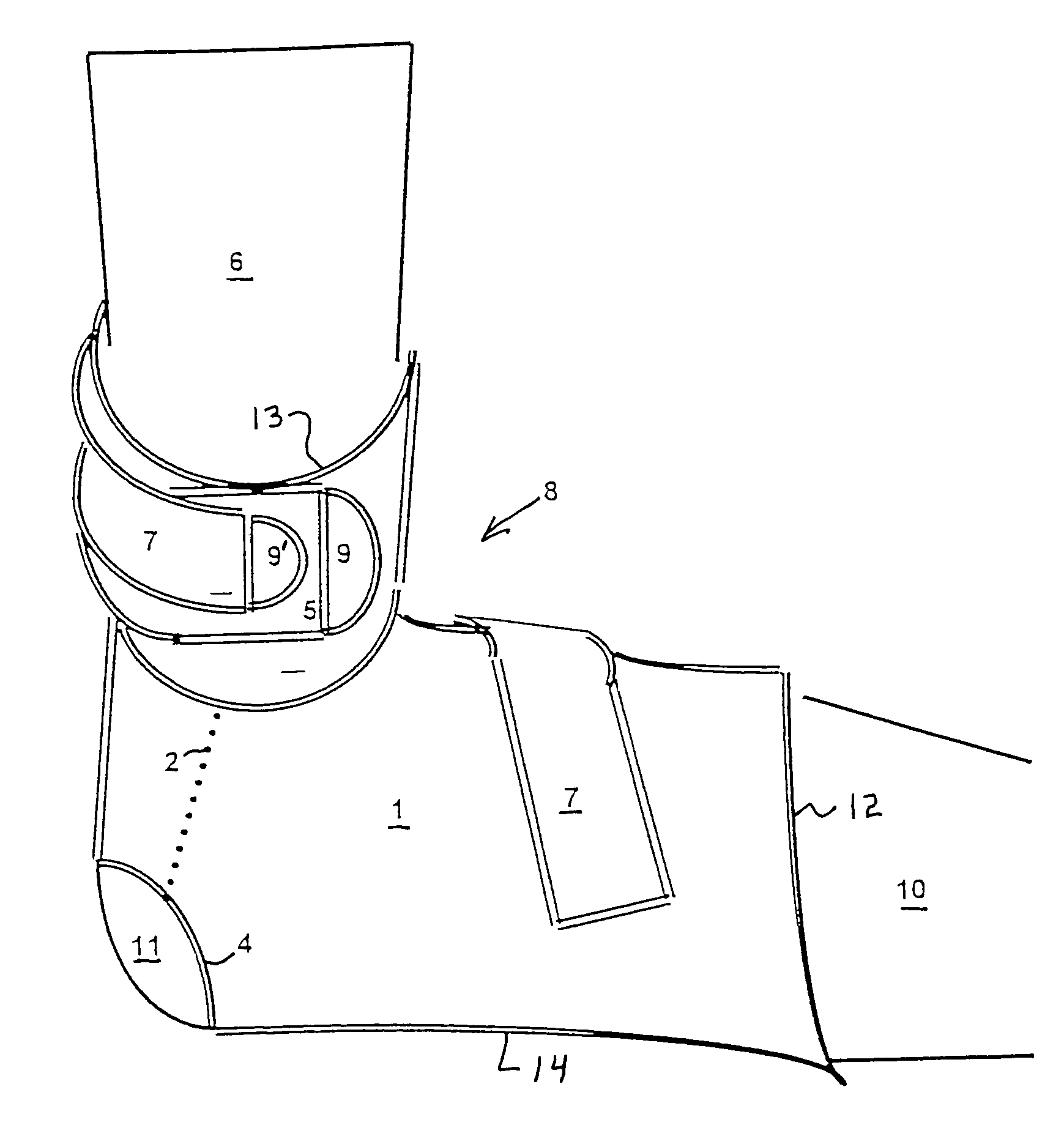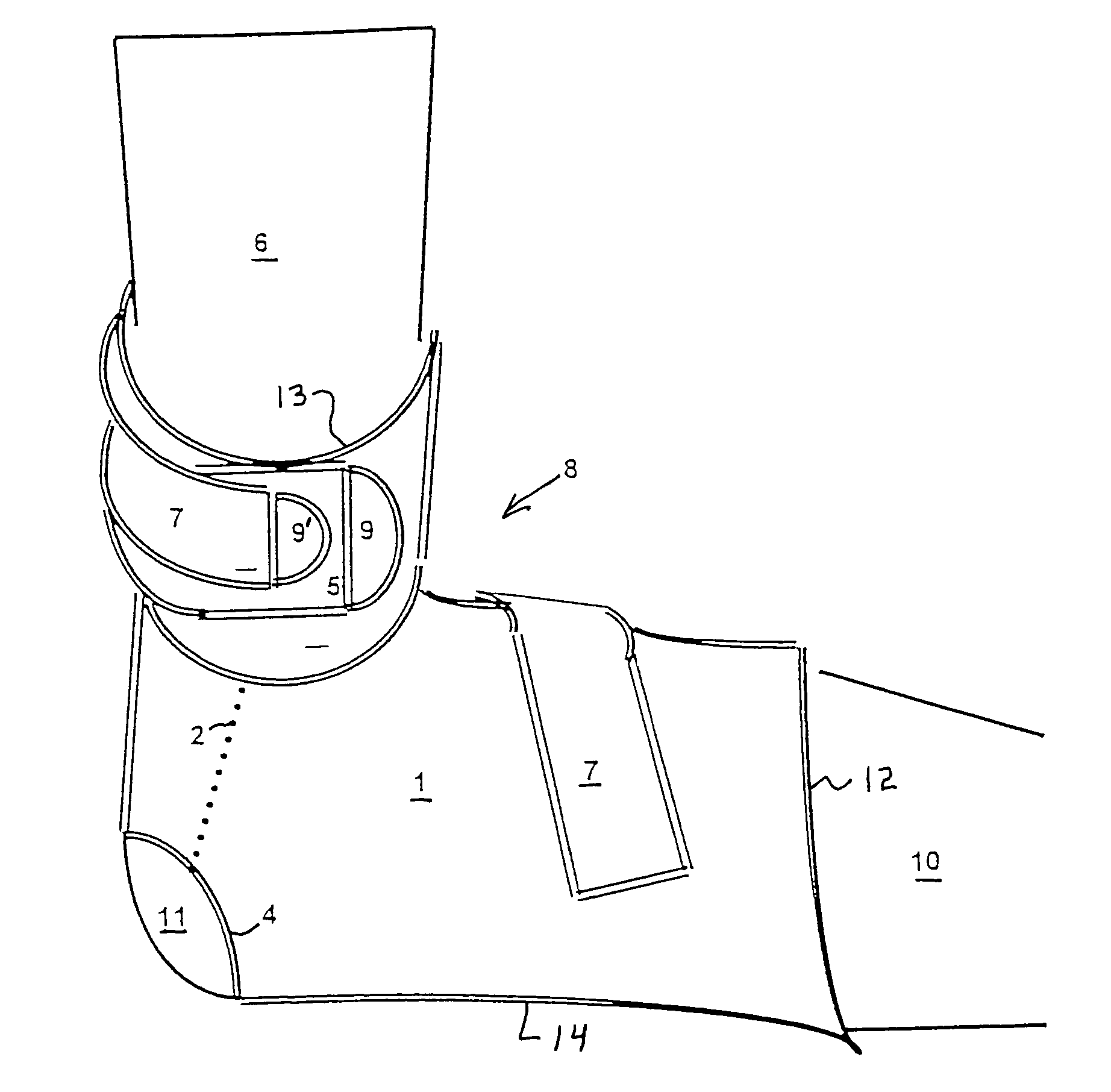Bandage for the ankle joint
a technology for ankle joints and ankle joints, applied in the field of ankle joint bands, can solve the problems of limiting the use of ankle joint orthotics, difficult to achieve exact anatomical fit, skin pressure sores, etc., and achieves the effect of simple and reliable use for patients and reduced risk of both inversion and eversion trauma
- Summary
- Abstract
- Description
- Claims
- Application Information
AI Technical Summary
Benefits of technology
Problems solved by technology
Method used
Image
Examples
Embodiment Construction
[0041]The invention is explained in greater detail by means of a diagram of an example of the design, namely positioned on the right foot 10. The version of the bandage for the left foot is designed as a mirror-image of the first. In the preferred version it can be changed over from the right to the left version by reversing the bandage.
[0042]The elastic tape 1 is attached to itself with the two fronts 2 (only one of which is shown) to form a sock 3 which has the figure of an eight. The sock 3 has foot opening 12 for the foot, a leg opening 13, and a heel opening 4. The bandage is placed on the foot 10 so that the bridles or strips 5, 7 are in a lateral position and the heel 11 is exposed in the heel opening 4. The upper bridle or strip 5 is then closed circularly on itself around the ankle joint 6 using the attached first Velcro strip 9. The lateral lower bridle 7 is guided over the instep 8 and also closed circularly on itself around the ankle joint 6 using the attached second Vel...
PUM
 Login to View More
Login to View More Abstract
Description
Claims
Application Information
 Login to View More
Login to View More - R&D
- Intellectual Property
- Life Sciences
- Materials
- Tech Scout
- Unparalleled Data Quality
- Higher Quality Content
- 60% Fewer Hallucinations
Browse by: Latest US Patents, China's latest patents, Technical Efficacy Thesaurus, Application Domain, Technology Topic, Popular Technical Reports.
© 2025 PatSnap. All rights reserved.Legal|Privacy policy|Modern Slavery Act Transparency Statement|Sitemap|About US| Contact US: help@patsnap.com


